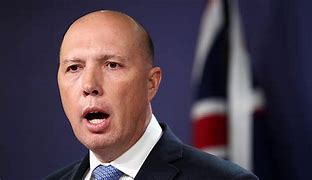Amazon just recommended that I buy The Shrinking Nation, in response to ‘my recent activity’. This is the second time that has happened lately: on the other occasion, Amazon told me to check out Ending the Affair: The decline of Australian current affairs television, which I published in 2005.
I guess it shows that the algorithm is working OK, and they are picking up on my core interests. The suggestion is certainly more ‘on brand’ than the ‘Senior Singles’ and erectile dysfunction ads that seem to be permanent fixtures on my Google feed (which, I should add, do not reflect my ‘recent activity’). But it also demonstrates what happens when these engines do their stuff without any sort of human intervention.
However, while appreciating the craziness of this, I also wonder — is that all there is? What else might I (and others with similar interests) be reading? How come Amazon can’t find me other pieces of ‘big picture’, state of the nation, research-based analysis of Australian politics, culture and society?
Truth is, there aren’t that many. Or, at least, there aren’t that many which draw upon academic research to do that kind of work.
There is, to be sure, a small but steady stream of books on contemporary politics written by journalists. Valuable work, coming from such as George Megalogenis, David Marr, Niki Savva, or Bernard Keane, for instance.
But this is different from the work that academic researchers do. High quality political journalism is certainly urgently needed but it is, of itself, not sufficient. Also urgently needed are the products of, for instance, cultural history, political science, cultural studies, or Australian Studies — preferably written in a way that makes their distinctive value accessible to the general reader. And, as I say, there is little of that about.
The 2024 Academy Symposium
I have been thinking about this within another context recently. I am presently on the organizing committee for the 2024 symposium of the Australian Academy of the Humanities, which will use the 60th anniversary of the publication of Donald Horne’s The Lucky Country as its jumping off point.
I’ll admit that I have been never been a great fan of this book — it’s too opinionated for me. I’ve also been irritated by its long afterlife as the customary reference point for lazy discussions of Australian culture and society. But, notwithstanding my personal reservations about it, The Lucky Country represents an important kind of book — a wide-ranging, ground-breaking, and readable analysis of the national culture — that has become worryingly rare. This leaves quite a gap in the public sphere.
That’s the gap upon which the AAH symposium will be focused as it hopes to open up renewed space for the kind of national conversations that occurred around The Lucky Country but which are now less national, more bitterly contested, and (probably most concerning) less noticed.
As the local book publishing industry struggles to survive, and as the Murdoch media’s insatiable appetite for the culture wars strangles public debate, Australia is not currently fertile ground for the publication of progressive socio-cultural analysis. The publication of academic studies about Australia has ground to something perilously close to a halt and, in general, it is very difficult to reach a readership on the strength of an idea, as against the public profile of its author.
The capture of politics
The contemporary context for the reception of any big picture analysis of Australian culture and society is also politically, culturally, and demographically fractured. Not only have the last two decades’ politics of division sliced the reading public into tribal constituencies, but the field of debate in the public sphere has contracted.
The public discussion of Australian politics has been thoroughly captured by the political class. It is pretty clear that they regard political debate as their business, and their business alone. Anyone outside that class should keep their opinions to themselves and just get on with their day jobs — running an airline, say, or delivering medical services to asylum seekers, or fighting fires
Journalists are part of that political class, although they often face an uncomfortable choice about which actual role they might play: whether to behave as old school independent watchdogs, or as partisan political players, or (perhaps worst of all) as wordsmith-ing entertainers.
Not to overdo the compassion, though, their proximity to the coalface of day-to-day politics entitles them to a hall pass denied to the rest of us; mostly, they get to publish their opinions without being told to butt out.
Perhaps this reflects the fact that so much of those opinions is based on conversations with politicians. Those who don’t have that kind of access are, explicitly, ‘outsiders’, left to consume their politics at a distance — joining the audience for Speersy on Sunday mornings.
In one of those books we need more of, Frank Bongiorno puts it like this.
‘In democracies, we are told that the people are the boss. In reality, even those of us with a vote are left as bystanders — spectators of “a game of winners and losers played out among larger-than-life individuals”. And some of us are expected to be content with a place at the back of the grandstand, with little hope of our voices carrying to other spectators, let alone those heroic figures competing in the arena’ (p.5).
That bunch at the back of the grandstand just keeps getting bigger.
If you like this post, please share it. If you would like to be notified of new posts to this blog, send me an email to graeme.turner@uq.edu.au




Very nice article and straight to the point. I don’t know if this is actually the
best place to ask but do you guys have any thoughts on where to get
some professional writers? Thank you 🙂 Escape room